Three Arrested At Khamenei’s Office For Suspected Leak
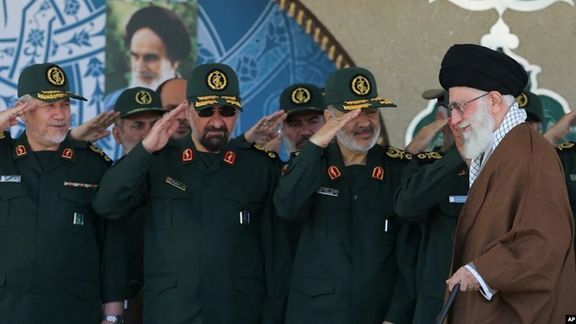
The intelligence protection unit Iranian Supreme Leader Ali Khamenei’s offices has reportedly arrested and interrogated three people on suspicion of disclosing secret documents.

The intelligence protection unit Iranian Supreme Leader Ali Khamenei’s offices has reportedly arrested and interrogated three people on suspicion of disclosing secret documents.
The arrests come after Iran International and others published secret documents of a meeting of IRGC commanders with Khamenei in which the top officials expressed serious concerns about loss of loyalty among the ranks of the Revolutionary Guard (IRGC) amid the recent protests.
Reports by Vaght-e Azadi Telegram channel say security agents in other intelligence agencies are also looking for people who played a role in leaking the document.
Iran International on Monday published a copy of a 44-page document that contains citations of the remarks made by 45 IRGC commanders and clerics at the January 3 meeting.
The meeting was held more than three months into the anti-regime protests following the death of the 22-year-old Mahsa Amini in the custody of ‘morality police’ and quickly spread across the country.
Participants in the meeting included top IRGC officers such as Major General Gholam-Ali Rashid, commander of IRGC’s Khatam Al-Anbiya Central Headquarters.
Rashid told Khamenei that there had been several cases of major insubordination since the protests started including aborted plans to use artillery to shell certain targets in Tehran, including Khamenei’s residence.
Based on the revealed document, a large number of IRGC commanders stated in the meeting that the country is suffering from severe economic problems and that it is beyond the power of President Ebrahim Raisi to resolve them.
According to them, the family members of many IRGC forces were among those arrested during the nationwide protests.

Despite US sanctions Iran has reached its highest level of oil exports in at least two years surpassing 1.3 million barrels per day, the finance minister says.
Ehsan Khandouzi stated in an interview with The Financial Times that non-oil exports of $53bn were also 12 per cent higher in the first 11 months of the past Iranian year than the same period the last year.
Iran keeps its oil export destinations and revenues a secret because of US third-party sanctions on buyers
He further claimed that imports over the same period were $60bn showing that “Iran’s economy cannot be isolated”.
Khandouzi also noted that Russia had invested $2.76bn in Iran’s industrial, mining and transport sectors during the current financial year that ended Monday.
His comments come as Tehran does not reveal how much it earns from crude oil exports, but 1.3 million barrels per day with an average price of $60 p/b, revenues should total over $28 billion a year.
The oil products Iran exports in addition to crude also generate roughly the same rate of income as crude oil.
However, Iran offers discounts to its main buyer, China, and it is not clear how much hard currency it recoups from the sales. Many observers believe Tehran might be bartering some of its oil to get food and other necessities.
The critical financial situation in Iran is perhaps an indication that Tehran is offering deep discounts and does not receive hard currency for all the exports.
The rial has dropped two-fold since President Ebrahim Raisi took office in August 2021 as one US dollar currently is worth 500,000 rials.
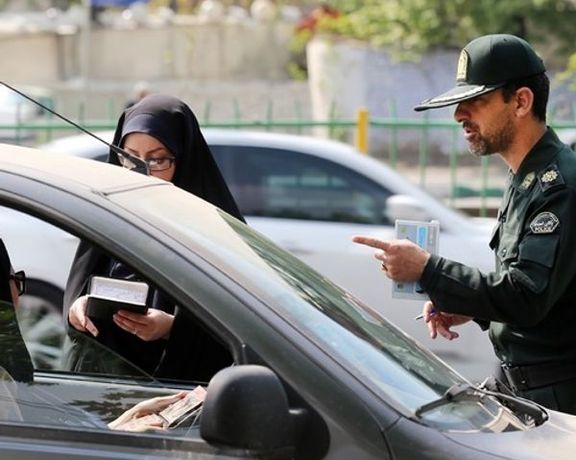
As the Holy Month of Ramadan starts, Iran's police have warned there will be strict punishments for those caught eating in public during fasting hours.
Every year police enforce a national plan to deal with those who break Ramadan rules in public, and transgressors are sometimes sentenced to months of detention and lashes, but in most cases they are released after a few days. Last year dozens of businesses were closed by the government for violating the rules.
Iran’s police command issued a statement on Wednesday warning there will be serious consequences including arrests and fines to people breaking "Islamic rules" and eating during fasting hours, especially in public spaces such as parks, gardens or vehicles.
The statement also warned hotel and restaurant managers, terminals, airports, and railway stations that they can provide services to passengers only "if they cover their space in such a way that it cannot be seen from the outside".
In addition to avoiding certain actions mentioned in the Qur'an, Muslims must abstain from food or drink of any kind from dawn to dusk, which will be about 14 hours in Iran this year.
The vocal warnings were met with criticism by Iranian lawmaker Mojtaba Tavangar, who criticized the "politicization of fasting" by regime officials.
Ramadan fasting began Thursday in Iran but a declining number of Iranians observe the traditional fasting period. As the population becomes more secular, less Iranians feel as committed to the rigid traditions of Islam, which the regime tries to impose on their lives.
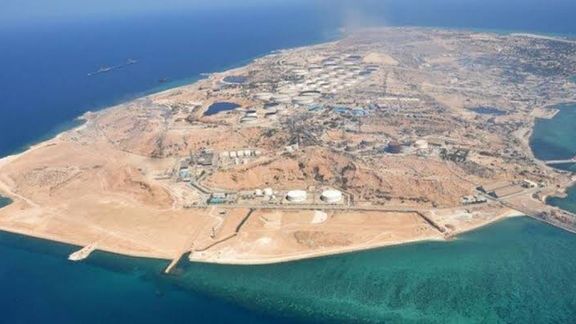
The Gulf Cooperation Council has reiterated its position on Iran’s “occupation” of three islands in the Persian Gulf which it claims belong to the United Arab Emirates.
The declaration was made once again by the foreign ministers of the six member states of the GCC, who claim the Greater Tunb, Lesser Tunb, and Abu Musa have been unlawfully occupied by the regime.
The Ministerial Council , which hosted high profile attendees including the de facto ruler of Saudi Arabia, Mohammed bin Salman, stressed support for the sovereignty of the United Arab Emirates over the three islands as an indivisible part of the territory of the United Arab Emirates.
In the meeting Wednesday, they further added that any practices or actions carried out by Iran on the three islands are “null, void and have no effect on the right of the sovereignty of the United Arab Emirates over its three islands”.
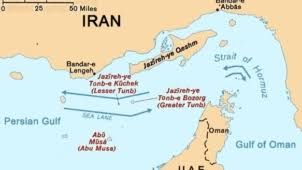
The Ministerial Council also called on Iran to respond to the efforts of the United Arab Emirates to resolve the issue through direct negotiations or resorting to the International Court of Justice.
The three islands have been in dispute since the British withdrew their armed forces in 1971 and Mohammad Reza Shah sent the Iranian navy to secure all three.
Iranian forces remain on the islands, with only Abu Musa having a civilian population which is less than two thousand.
The Council welcomed the agreement reached between Saudi Arabia and Iran in Beijing at the initiative of the Chinese President Xi Jinping, which it also hopes can pave the way for talks over Iran’s nuclear enrichment, a shared concern for all GCC states.
“[We] hope this agreement would constitute a positive step for resolving differences and ending all regional conflicts through dialogue and diplomatic means and establishing relations between countries on the basis of understanding, mutual respect, and good neighborliness,” read the statement.
After seven years of soured political relations, Iran and Sadi Arabia signed a deal earlier this month brokered by China to resume times and open embassies in the respective capitals.
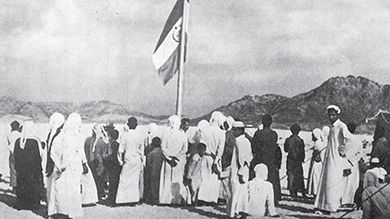
However, the continued activity of Iran’s proxy militia, the Houthi rebels, is proving a contentious issue as they show no signs of abating action in Yemen.
The Council reiterated its calls on the Houthis to negotiate under the supervision of the UN to reach a political solution.
The Ministerial Council further condemned Iran's continued “foreign interference in the internal affairs of Yemen, sending military experts and weapons to the Houthi terrorist militia in clear violation of Security Council Resolutions”.
Iran’s Foreign Ministry Spokesman Nasser Kanaani slammed the comments about the occupied islands and stressed Thursday that they are an integral and eternal part of the territory of the Islamic Republic of Iran.
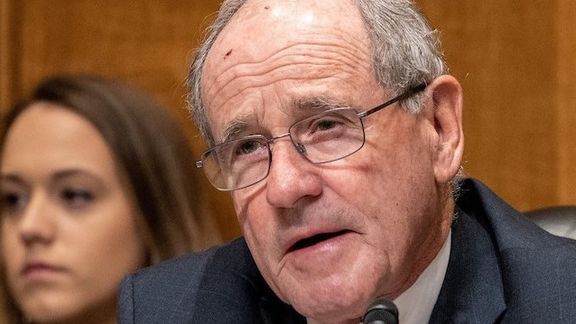
A group of US Republican senators has urged the European Union to designate Iran's Islamic Revolutionary Guard Corps (IRGC) a terrorist organization.
In a letter to EU Foreign Policy Chief Josep Borrell on Wednesday, 12 Republican senators led by James Risch (R., Idaho) said: "The IRGC clearly presents a threat to the EU and our collective security."
They further added that "it is long past time to cut off its resources before the next tragedy strikes", referring to attacks the organization has committed overseas, including the high profile attempted murder of author Salman Rushdie during a speaking engagement in the US.
The regime vehemently denies responsibility though said Rushdie had crossed a "red line" against Islam, tacitly approving of the incident which left him with life changing injuries.
According to a copy of the letter exclusively obtained by the Washington Free Beacon, Republicans say an EU "designation will cripple the IRGC's ability to promote terrorism and will make the world safer for Americans and Europeans alike".
The European Parliament overwhelmingly passed a resolution on January 19 calling on the EU and member states to designate the IRGC, however, several states including Germany fear designation will close the window of diplomacy regarding Iran's nuclear program may be closed.
The United States designated the IRGC as a global terrorist organization in 2019. It has carried out multiple cyber attacks and threats to the lives of Iranians abroad, including staff at Iran International based in the UK.
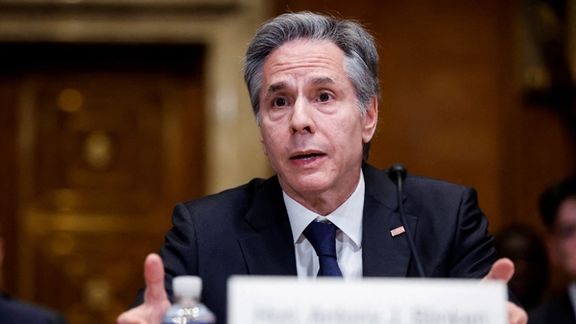
Pressure is mounting on the Biden administration to take harsher action on Iran as senators claim Iran’s oil wealth is helping fund Russia’s war on Ukraine.
At a review of the 2024 State Department Budget Request on Wednesday, Republican Senator Ted Cruz called the Biden administration “weak”, claiming its weakness on Iran is indirectly supporting Russia’s war efforts, in addition to boosting its nuclear capacity.
In a scathing attack, Cruz told Secretary of State Antony Blinken a walking back of the previous administration’s oil sanctions on Iran has led to empowering the regime's nuclear program and helped it support Russia’s military capacity through drone sales.
“I'm deeply concerned, however, that no matter how much you may want to help Ukraine there is something the Biden administration wants more, which is to re-enter a nuclear agreement with Iran,” he said.
“This administration has shown weakness on Iran since day one, and continues to do so. Just in the last few weeks there have been reports that you again waived congressional sanctions to allow Iraq to move money to the Central Bank of Iran, which the Ayatollah uses for terrorism, for ballistic missile development, and nuclear weapons work.”
The outspoken Senator went on to discuss the oil revenues which Iran is capitalizing on in addition to claiming that Russia’s use of Iranian oil tankers violates US energy sanctions.
“You've allowed that ghost fleet to grow dramatically,” Cruz said, claiming the number of tankers Iran was using at the start of the administration has risen from 70 to 300.
“The administration [has] allowed Iran to restore its energy exports, getting above one million barrels a day, which is funding the regime and funding the war on Ukraine.”
Last month was the highest oil exports Iran has had since 2018, not only great news for a beleaguered Iranian economy, but a boost to Russia which is now using an enormous Iranian fleet to bypass international sanctions.
Iranian oil exports started hitting new highs in the last two months of 2022 despite US sanctions, with higher shipments to China and Venezuela, countries bypassing international sanctions.
Tehran's oil exports were limited under former President Donald Trump when in 2018 he exited a 2015 nuclear accord and reimposed sanctions aimed at curbing oil exports and the associated revenue to Iran's government.
However, exports have risen during the term of his successor President Joe Biden, who had sought to revive the nuclear deal, and hit the highest since 2019 on some estimates. This comes despite headwinds such as a stall in those talks and competition from discounted Russian crude.
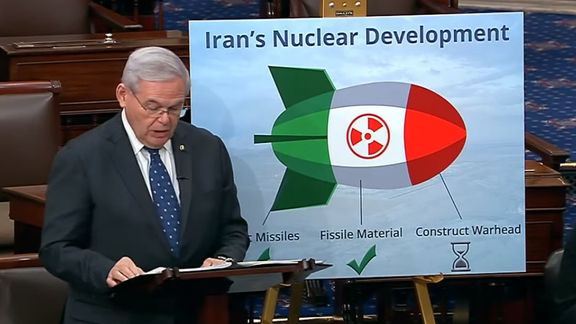
Energy consultant SVB International said Iran's crude exports in December averaged 1.137 million barrels per day, up 42,000 bpd from November and the highest 2022 figure SVB has reported based on estimates given earlier.
Blinken sheepishly defended the administration’s position, standing by the desire to return to the nuclear deal, known as JCPOA, talks which broke down last year after Iranian intransigence.
He said the US is “actively and aggressively working to break up” the alliance between Russia and Iran, claiming there are moves underway to reimpose the oil sanctions. Though the administration has imposed sanctions across Iran’s UAV network, which it is supplying to Russia for its invasion on Ukraine, a position the regime firmly denies, it is no nearer quelling the million barrels of oil Iran is selling which in turn, funds its global network of terror.
“We’re working every day to enforce the existing sanctions on Iran even as we're looking at imposing new ones,” said Blinken, though Cruz refuted the claims, accusing him of it being a simple political decision not to enforce the oil sanctions.
Russia’s support for Iran’s nuclear program was also a major point of contention, Cruz citing President Vladimir Zolensky’s claims that Russia is compensating Iran for weapons through nuclear cooperation. “Under this administration, you have allowed Iran to get to the brink of a nuclear weapon,” Cruz blasted, while Blinken blamed the failure of nuclear talks on Iran’s pulling out.
Senator Bob Menendez (D-NJ), Chair of the Senate Foreign Relations Committee, signaled the exasperation felt among Republicans and some Democrats at the lack of action from the Democrat administration to curb Iran’s growth. Rather than calling on a return to the JCPOA, the sentiment is that the moment has long passed.
“The Europeans have not joined us in multilateralizing our sanctions which at this time to Iran would have a huge consequence,” Menendez said. “It's time to come to the conclusion that we want Iran to move in a different course, so others have to join us as well.”
His sentiments were echoed by Senator James E. Risch, who, with Menendez, recently met with the International Atomic Energy Agency to discuss the matter of Iran.
Concurring, Risch added: “We need to encourage our European allies to join us in what we're trying to do as far as Iran is concerned.”